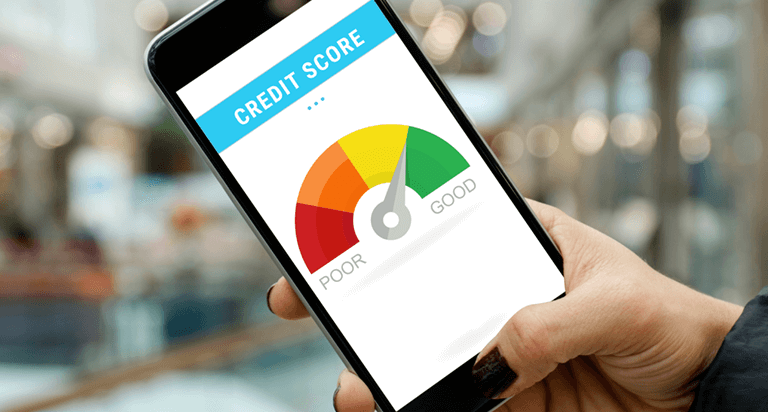Finding the Right Personal Loans for Borrowers with Good Credit
Highlights:
- Lenders consider your credit scores as a significant factor when deciding whether to approve you for a personal loan and at what terms.
- Borrowers with a credit score of 670 or higher may have an easier time being approved for a personal loan and securing a lower interest rate.
- If you know that your credit scores aren’t where they need to be to qualify for a personal loan with a lower interest rate, you may want to take steps to improve your scores before applying.
Personal loans are lines of credit that can be used at the borrower’s discretion to cover any number of expenses. You might use a personal loan to pay for emergency costs, to help consolidate high-interest credit card debt or to fund an important life event like home renovations or a wedding.
Your credit scores play a significant role in the personal loan application process. Here’s what to know about how your credit scores can affect the application process.
What is a “good” credit score for personal loans?
A credit score is a number (typically between 300 and 850) that helps lenders determine how likely you are to pay back money they lend, or the likelihood you will pay your bills on time. Credit scores are calculated based on the information in your credit reports including the number and types of accounts you have, your payment history for each and the total amount of credit available to you.
Lenders consider your credit scores as one factor when deciding whether to approve you for a personal loan and at what terms.
The exact credit score you need to be approved for a personal loan varies from lender to lender. However, generally speaking, the higher your credit score is, the better your chances are of being approved for a loan or receiving a favorable interest rate.
Most lenders consider those with a credit score of 670 or higher to be lower-risk borrowers. These applicants may have an easier time being approved for personal loans and securing lower interest rates.
Individuals with “fair” credit scores between 580 and 669 are considered riskier “subprime borrowers” and may have a harder time qualifying for a loan with good terms.
Having “fair” or even “poor” credit scores (below 580) doesn’t necessarily mean there will be zero personal loan options available to you. However, it’s important to understand that borrowers with lower credit scores will typically have a more difficult time finding good loan options. Higher-risk borrowers might want to consider working on their credit scores before starting the application process.
What is a good APR for a personal loan?
APR (annual percentage rate) represents the price you pay to borrow money. It includes a loan's interest rate, fees and other borrowing costs. Typically, APRs for personal loans range between 10% and 36%. The average personal loan APR is 9.34% according to data from the Federal Reserve. Avoid loans with APRs higher than 10% (if possible).
As with loan approval, the APR you qualify for will depend on a number of factors and will vary from lender to lender. However, as a rule of thumb, the higher a borrower’s credit scores, the more likely they are to receive a favorable APR.
Lenders consider a variety of factors when determining the APR for your personal loan, including what’s known as the “prime rate,” or the best possible rate that banks and other financial institutions charge their most creditworthy customers. They will also take into account your credit history, employment status and history, your debt-to-income ratio (the total amount of debt payments you owe every month divided by your gross monthly income) and your loan term (meaning how long you have to pay back what you borrowed). You may see lower APRs on shorter loan terms, but your payments per month will likely be higher.
Generally, an APR below 10% is considered a good rate. Your personal loan APR should ideally be no more than the APR of a credit card, which is typically between 15% and 25%.
Getting personal loans with “fair” credit scores
It’s still possible to get a personal loan with “fair” credit scores, which generally range from 580 to 669. You may just have a more difficult time being approved and you may receive a higher interest rate than a borrower with “good” or “excellent” credit scores.
If you’re in the market for a personal loan but have “fair” credit scores, compare different offers from lenders. Ask around about which lenders have strict requirements so you can determine whether your credit scores fall within their range for the loans you’re considering.
When you start shopping around, you’ll also want to compare the maximum interest rate for each loan. Having “fair” credit scores means you will likely receive an interest rate on the higher end of the lender’s range. You’ll also want to make sure the monthly payment amount fits within your budget, and be sure to check for additional costs, such as late payment fees or prepayment penalties.
Learn more about loan offers today.
Steps to improve credit
If you know that your credit score isn’t where it needs to be to qualify for a personal loan with good terms, you may want to consider the following strategies steps before applying:
- Pay your bills on time by budgeting wisely. Late or missed payments can have a significant negative impact on your credit scores.
- Manage credit card balances by using no more than 30% of your total available credit, known as your credit utilization ratio. Keep the percentage as low as you can — below 10% if possible — to potentially improve your credit scores.
- Check your credit reports regularly to catch any discrepancies or signs of fraud early on. Seeing your credit history improve may also help you track your progress and stay motivated.


